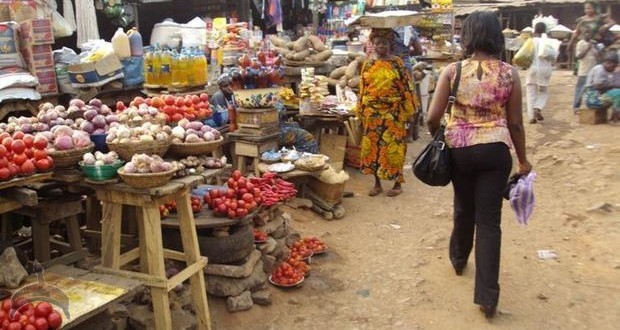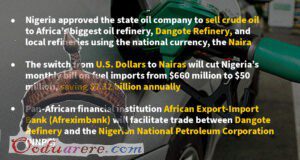In its April 2023 Africa’s Pulse report, the World Bank stated that Nigeria’s economy is likely to be driven by the non-oil sector as oil production is projected to keep subdued in 2023 due to many factors.
More details from the report
The report, which is an analysis of issues, shaping Africa’s economic future, stated that the Nigerian economy is set to grow by 2.8% in 2023, down from 3.3% in 2022, while oil production will remain subdued in 2023. A part of the report read:
- “The Nigerian economy is set to grow by 2.8% in 2023, down from 3.3% in 2022. It is expected to accelerate slightly to an average annual rate of 3% in 2024–25. This translates into growth per capita of 0.2% in 2023 and 0.4% in 2024–25, which is insufficient to reduce extreme poverty in the country.
- “Growth will continue to be driven by services, trade, construction, manufacturing, and agriculture. Oil production is projected to remain subdued in 2023, because of inefficiencies and insecurity, and recover slightly in 2024– 25. On the production side, growth in 2023 will be supported by industry (with a growth of 5.6%) with the mega-refinery project.
- “Country projections show a mixed picture of the evolution of the current account deficit across oil-exporting countries. For example, Angola, Gabon, and the Republic of Congo are expected to post current account surpluses in 2022 and maintain a surplus in the coming three years, albeit at declining levels.
- “Nigeria, the largest African oil producer, is not expected to reach a current account surplus in 2022. The country’s higher crude oil export revenues are more than offset by higher imports of refined petroleum products, lower remittances, and lower capital inflows. Nigeria’s projected current account deficit will remain at an average of 0.3% of GDP in 2023–25 because of declining prices and stagnant oil production.”
What to do
According to the World Bank report, African countries that find themselves battling inflation amid several other macroeconomic challenges need to adopt the following recommendations. This is because restoring macroeconomic stability is essential for growth. Some of the recommendations include:
- Raising interest rates and avoiding policy conflicts that reduce the effectiveness of monetary transmission (say, fiscal dominance, and foreign exchange distortions) are crucial to reducing inflation to target levels.
- Actionable policies can be implemented to stabilize debt-to-GDP ratios as well as seek debt reduction for countries with high risk or already in debt distress.
- Implementation of structural reforms that foster private investment should be at the top of the pro-growth policy agenda of countries in the sub-Saharan African region. A premium should be put on policy measures that boost long-term competitiveness, including actions to improve market contestability and promote a sound regulatory framework.
- Enact public policies to attract foreign investment by focusing on infrastructure, institutions, and incentives. Also, expand and upgrade the transportation system and ports. Enhance the reliability of and access to electricity, and foster the efficient use of existing infrastructure, which will boost economic integration in the region.
 Ọmọ Oòduà Naija Gist | News From Nigeria | Entertainment gist Nigeria|Networking|News.. Visit for Nigeria breaking news , Nigerian Movies , Naija music , Jobs In Nigeria , Naija News , Nollywood, Gist and more
Ọmọ Oòduà Naija Gist | News From Nigeria | Entertainment gist Nigeria|Networking|News.. Visit for Nigeria breaking news , Nigerian Movies , Naija music , Jobs In Nigeria , Naija News , Nollywood, Gist and more









